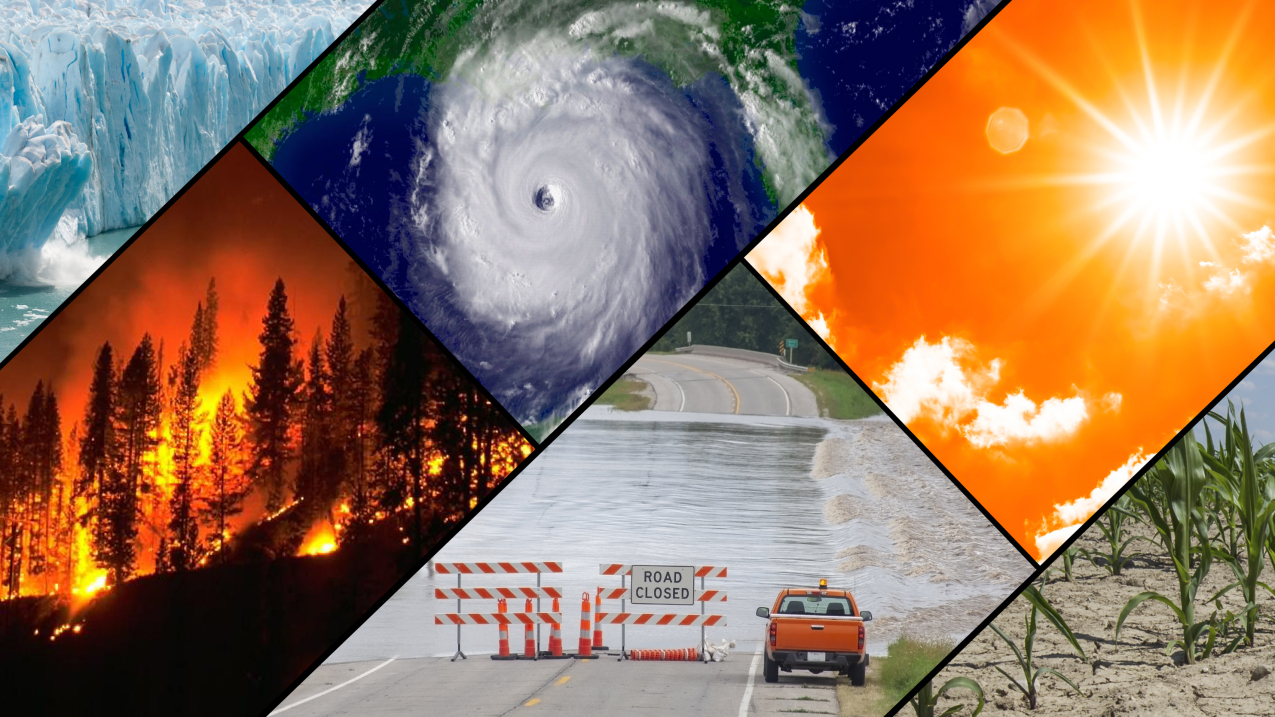Climate change is not just an environmental issue; it is a profound threat to public health. As the planet warms, we’re witnessing a cascade of impacts that extend far beyond melting glaciers and rising sea levels. From extreme weather events to the spread of infectious diseases, climate change is exacerbating existing health challenges and creating new ones. In this article, we’ll delve into the intricate relationship between climate change and public health, exploring the multifaceted ways in which environmental shifts are affecting human well-being.
The Impact of Extreme Weather Events
One of the most visible manifestations of climate change is the increasing frequency and intensity of extreme weather events. Heatwaves, hurricanes, floods, and wildfires are becoming more common, posing significant risks to human health. Heat-related illnesses, such as heatstroke and dehydration, are on the rise, particularly among vulnerable populations like the elderly and outdoor workers. In addition, extreme weather events can disrupt essential services, damage infrastructure, and displace communities, leading to mental health challenges and increased susceptibility to infectious diseases.
Air Pollution and Respiratory Health
Climate change exacerbates air pollution, which has profound implications for respiratory health. Rising temperatures and changing weather patterns contribute to the formation of ground-level ozone and fine particulate matter, both of which are harmful to human health. These pollutants can exacerbate respiratory conditions such as asthma and chronic obstructive pulmonary disease (COPD), as well as increase the risk of cardiovascular diseases and premature death. Vulnerable populations, including children, the elderly, and individuals with pre-existing health conditions, are particularly susceptible to the adverse effects of air pollution.
Vector-Borne Diseases and Spreading Zones
Climate change is altering the distribution and behavior of disease vectors, such as mosquitoes and ticks, thereby expanding the geographic range of vector-borne diseases. Warmer temperatures and changing precipitation patterns create favorable conditions for the proliferation of vectors and the transmission of diseases like malaria, dengue fever, Lyme disease, and Zika virus. In addition, extreme weather events can create breeding grounds for vectors and disrupt disease control efforts, leading to outbreaks and epidemics. The spread of vector-borne diseases poses significant challenges to public health systems and underscores the need for adaptive strategies to mitigate the impacts of climate change.
Food Security and Nutrition
Climate change affects food security and nutrition through its impact on agricultural productivity, food availability, and access to nutritious foods. Rising temperatures, erratic rainfall, and extreme weather events disrupt crop yields, reduce livestock productivity, and threaten food supplies, particularly in vulnerable regions with limited adaptive capacity. In addition, climate change can affect the nutritional content of food crops, leading to deficiencies in essential micronutrients such as iron, zinc, and vitamin A. Poor nutrition exacerbates the burden of disease, impairs immune function, and contributes to malnutrition, particularly among children and pregnant women in low-income countries.
Mental Health and Psychosocial Impacts
Climate change can have profound effects on mental health and well-being, both directly and indirectly. The experience of extreme weather events, natural disasters, and environmental degradation can cause acute stress, anxiety, depression, and post-traumatic stress disorder (PTSD) among affected individuals and communities. In addition, the gradual onset of climate change, such as rising temperatures and changing ecosystems, can lead to chronic stress, eco-anxiety, and feelings of powerlessness in the face of an uncertain future. Addressing the mental health impacts of climate change requires holistic approaches that integrate psychosocial support, community resilience-building, and climate adaptation measures.
Conclusion
Climate change poses a multifaceted threat to public health, with far-reaching consequences for human well-being and societal stability. From extreme weather events to the spread of infectious diseases, the impacts of climate change are already being felt across the globe, disproportionately affecting vulnerable populations and exacerbating existing health disparities. Addressing the health impacts of climate change requires urgent and concerted action at local, national, and global levels, including mitigation efforts to reduce greenhouse gas emissions, adaptation measures to build resilience, and investments in public health infrastructure and capacity. By understanding the interconnected nature of climate change and public health, we can work together to create a healthier, more sustainable future for all.




